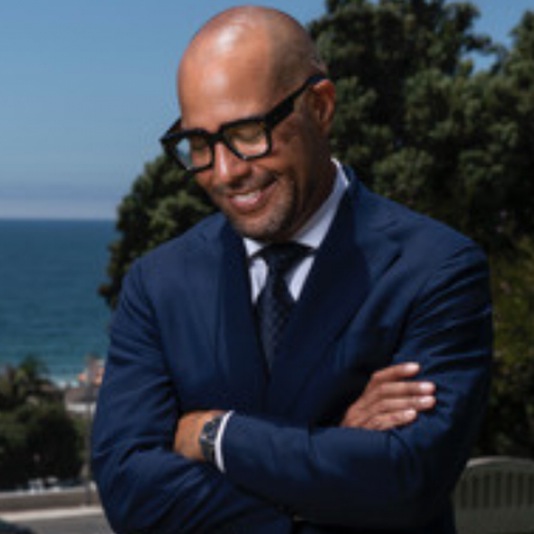By Darlene Donloe
Contributing Writer
Attorney George Fatheree has made a name for himself over the years, successfully leading a number of high-profile cases, most recently the one involving Bruce’s Beach.
His effective and exceptional pro bono work has not gone unnoticed. Fatheree, who said one of his goals is to give back, will serve as grand marshal of the 38th Kingdom Day Parade taking place at 11 a.m. Jan. 16 in South Los Angeles.
A reluctant hero, Fatheree, who represented the Bruce family, descendants of Charles and Willa Bruce, who once owned the oceanfront property in Manhattan Beach before it was taken from them in the 1920s, was caught off guard by the unexpected honor.
“I am a little embarrassed to receive the honor of being grand marshal when it was really a tremendous team effort that contributed to this landmark success,” said Fatheree, who was a former partner with Munger, Tolles & Olson when he launched the case and is now a partner at Sidley Austin LLP, one of the country’s leading strategic legal advisers representing investors, developers and lenders.
Adrian Dove, chairman of the Kingdom Day Parade, believes Fatheree deserves the recognition.
“With messages of equality for all amplified during Dr. King’s birthday, George Fatheree is a natural pick as the grand marshal for the parade, given not only his recent historic victory in the Bruce’s Beach case and a host of other similar cases,” Dove said.

The parade, sponsored by BlueShield, will be live-streamed worldwide on KingdomDayParade.org.
The theme of this year’s parade, which celebrates the life and legacy of the Rev. Martin Luther King Jr., is “Making America the Last Best Hope of the World.”
Fatheree’s work within the community is respected and impressive, yet he’s humble about his accomplishments some of which have had historic and cultural implications.
It was Fatheree who represented a consortium of nonprofits in the acquisition of the Johnson Publishing Company photography archive, ensuring the archives would be preserved and protected in perpetuity. He also volunteered to work with Holocaust survivors to get them payments from the German government and authored a successful amicus curiae brief to California’s Supreme Court on behalf of students with diabetes who required medication while attending school.
For almost 15 years, he has provided legal support for the Debbie Allen Dance Academy in Los Angeles.
The personable, married, father of two (ages 21 and 16) recently sat down to answer questions about his upcoming honor, as well as his ongoing civic work.
DD: Why did you agree/want to be the grand marshal of the Kingdom Day Parade?
GF: Honestly, I don’t feel that I deserve the honor, or at least do not deserve the honor as an individual. The return of Bruce’s Beach to the Bruce family was a team effort, or as I like to think of it it was a relay race. I did not work alone in representing the Bruces. I got to lead much of the work on behalf of the Bruce family, but this was truly a collective effort — and the success and recognition should be collective as well.
Still, I intend to use the privilege of serving as grand marshal to encourage all of us to take part and play our role — whatever it may be — in engaging in an urgent action for justice. To me, that’s what Dr. King’s work represents: each of us has an opportunity to engage in an urgent action for justice.
DD: Is the Kingdom Day Parade still significant?
GF: I think it’s probably as relevant now as it has ever been. As Angelenos, it’s never been so important for us to heed the words and examples of Dr. King to address some of the crises which are preventing our city from achieving its full potential. We need to house our un-housed brothers and sisters and commit to providing them the support to remain housed. We need to demand better educational outcomes on behalf of our public school students, especially our public school students of color who are most impacted by the achievement gap. And we need to demand accountability and justice to uproot the racial and socio-economic discrimination which poisons our law enforcement and criminal justice systems.
DD: While riding in the parade, some people may not know who you are or what you’ve done. Is it important to you that Black people know what you’ve been doing on their behalf?
GF: Ha! I love that. I have absolutely zero desire to be known. What I want to talk about is the work and what’s possible when we raise our hands and volunteer to try to have a positive social impact. I want to talk about what can happen when we try to make a difference. My father left my mother with three kids when I was 4 years old. I grew up in Chino. We were working class. I went to public school. Neither my future nor my success in life was certain or guaranteed.
With the support of my mother, and with the support and investment of great teachers and coaches, I was able to get a great education and have been able to pursue great opportunities. I try not to take any of that for granted. For me, it’s not an obligation that I feel to give back. It’s a privilege.
I also want to be careful not to overstate my contributions or my impact. There are tons of folks around this city working their tails off every day to make L.A. a better place, a safer place, a cleaner and a more humane place.
DD: Regarding Bruce’s Beach, many think $20 million for the waterfront property is too low.
GF: Let’s be clear about one thing: the magnitude of the Bruce family’s loss is completely immeasurable. The Bruces can never be returned to the position that their family could have been in had their land and business not been violently ripped away from them. The Bruce family could have been a hospitality dynasty like the Hiltons or the Marriotts. Their success and wealth could not have just secured their own legacies, but they could have created exponential wealth through the Black families they employed or inspired, the Black businesses and entrepreneurs they funded, the charities and nonprofits they could have supported, and the politicians they could have helped elect. What we all lost is immeasurable. Those are the facts.
DD: How has the Bruce’s Beach case intensified the conversation of trans-generational wealth in Black families?
GF: The story of Bruce’s Beach has also helped blow up this myth that it’s an equal playing field out there, but somehow Blacks just keep coming up short. Bruce’s Beach is a prime example of how the system was rigged against us to stop us from building wealth, growing it, and passing it down on an inner-generational basis. Racially motivated eminent domain was one way they rigged the system — but it was far from the only way.
DD: You are on the board of Destination Crenshaw. Talk about your involvement, why you joined the board and your hope for the project.
GF: Destination Crenshaw is a project that is close to my heart. Its goal is to support and strengthen Black businesses in the Crenshaw community through investment in infrastructure, art and culture, and environmental preservation. Destination Crenshaw is investing tens of millions of dollars in public infrastructure, it’s planting hundreds of trees, it’s building parks, and it’s investing in art to display the beauty, strength, and talent of our community.
DD: Do you have political aspirations?
GF: Absolutely! My political aspirations are for our elected officials to behave in ways that honor our democracy and are worthy of the privilege of serving as our elected representatives. That’s sorely missing and in my mind, it’s not a coincidence that at the same time we see outrageous partisan behavior and racially and socio-economically insensitive political rhetoric, we also see an increase in the problems we’re facing as a community.
If the question is whether I have any aspirations to pursue elected office, the answer is no. I feel blessed to be doing what I’m doing, and am grateful for the opportunity to have an impact where I am.
“The Q&A” is a feature of Wave Newspapers asking provocative or engaging questions of some of L.A.’s most engaging newsmakers or celebrities.
Darlene Donloe is a freelance reporter for Wave Newspapers who covers South Los Angeles. She can be reached at ddonloe@gmail.com.













